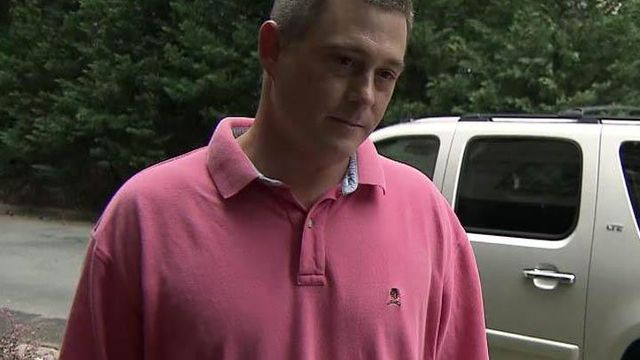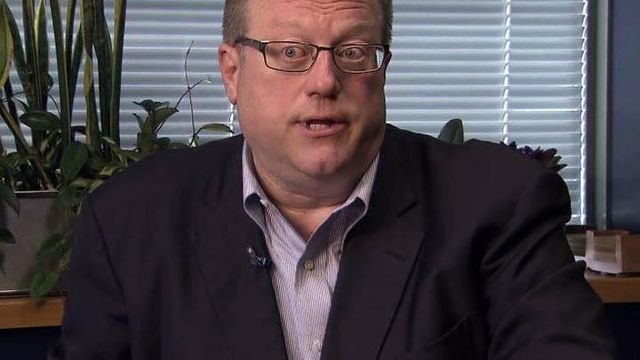Jurors: Evidence in John Edwards case fell short
Some of the jurors who heard the case against John Edwards said Friday that there just wasn't enough evidence to convict him of campaign finance violations.
Posted — UpdatedSix of the jurors went on network talk shows Friday morning, a day after acquitting the former U.S. senators and two-time presidential candidate on one count and failing to reach a verdict on five other charges.
Prosecutors had charged Edwards with masterminding a scheme to use nearly $1 million in campaign contributions from two wealthy donors to hide his pregnant mistress while he ran for the White House in 2008.
"I think he was guilty, but the evidence was just not there for us to prove guilt," juror Cindy Aquaro, a special education teacher from Winston-Salem, said on NBC's "Today" show.
Another juror, Theresa Fuller, told ABC's "Good Morning America" that she also found the evidence lacking.
The eight-man, four-woman jury deliberated for about 50 hours over nine days before telling U.S. District Judge Catherine Eagles on Thursday afternoon that they would never agree on verdicts on five of the six charges against Edwards.
The one charge they agreed he was not guilty of was accepting illegal campaign contributions in 2008 from Virginia heiress Rachel "Bunny" Mellon. Mellon had funneled $725,000 in checks through a friend to Edwards aide Andrew Young in 2007 and 2008, but the last two checks were cashed after Edwards dropped out of the presidential race in January 2008.
Alternate juror Denise Speight told "CBS This Morning" that Edwards was outside the path of the cash from Mellon and Texas trial lawyer Fred Baron.
"All the money, (it) never went into the campaign," said Speight, who wasn't part of the deliberations. "(The payments) never went to John Edwards. Of the $1.8 million, $1.6 (million) went right to Andrew and Cheri Young."
While juror Ladonna Foster, a human resources employee from the Surry County town of Pinnacle, said the government should retry the case, jury foreman David Recchion said changes need to occur first.
"I think there needs to (be a) change in the campaign finance law before you go through this process," Recchion, a financial consultant from High Point, said on "Today."
Jurors expressed frustration with the process, but Jonathan Nunn, a Chapel Hill plumber, said all 16 people on the jury, including the four alternates, got along well. Still, he said, there was no way they would have ever reached an agreement on any of the five charges.
"It was different. It was all different," Nunn told WRAL News of divisions within the jury on various charges.
He said he was relieved to put the trial behind him.
So was Wallace Edwards, who drove with his wife from their Robbins home every day to support their son during more than a week of jury selection, four weeks of testimony and nine days of jury deliberations.
"I thank God for his mercy," Wallace Edwards said Friday.
Lawyer: No winners in trial
A Raleigh lawyer who specializes in election law said he thinks the outcome of the Edwards case will have very little impact campaign finance regulations.
Michael Weisel said the U.S. Department of Justice went too far in trying to tie hush money over an affair to Edwards' campaign.
"Among the nationwide election law legal community, there was almost complete consensus that the government was really stretching on this one," Weisel said.
He said the legal spectacle damaged just about everyone involved, from Young, the government's star witness, to the defendant.
"I think what the jury was trying to determine is who lied the least," Weisel said. "There are no winners in this case whatsoever, not the Edwards children, not John Edwards, not Andrew Young, not Cheri Young, not their children and not the public.
"Anyone, including John Edwards, who believed he was vindicated in this trial is just plain wrong."
Because Eagles limited defense testimony from a former Federal Election Commission chairman and gave an interpretation of the law favorable to prosecutors, Weisel said this was the government's best chance to convict Edwards. He said he doesn't foresee any retrial of Edwards on the five charges on which the jury deadlocked.
Beyond election law, he said he sees one simple, profound message from the case: Don't have mistresses.
• Credits
Copyright 2024 by WRAL.com and the Associated Press. All rights reserved. This material may not be published, broadcast, rewritten or redistributed.






